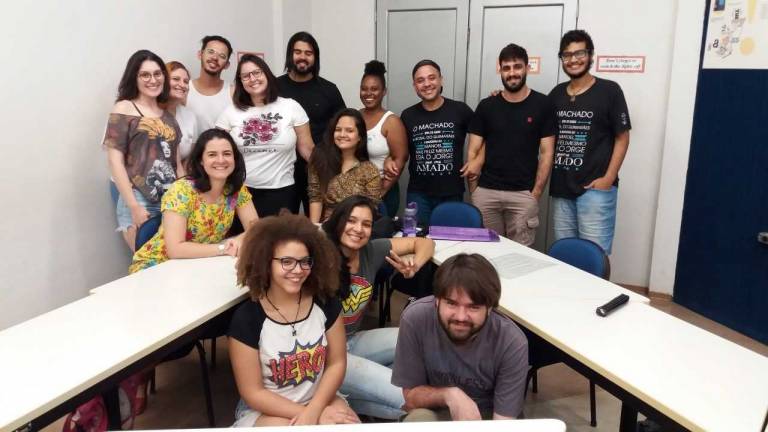Portuguese Virtual Language Exchange
12 June 2019

The Portuguese Virtual Language Exchange (PVLE) is an online language exchange between UCL Portuguese-language and UNESP English-language students, which promotes language practice, intercultural contact and the exchange of ideas. This initiative follows current trends in education that aim to foster internationalization activities to students and is directly related to UCL and UNESP strategic objectives to promote virtual exchange programs. The programme is coordinated by Dr Ana Cláudia Suriani da Silva (UCL) and Dr Paula Tavares Pinto (UNESP-Rio Preto).
The pairs work collaboratively to practice each other’s language outside of class. Each partner is a student for thirty minutes, learning and practicing the language from the other partner. Then they switch roles and languages. This symmetrical learning provides the opportunity for students to practice their language skills in a context that is less artificial than the typical language class.
In 2018-19, students taking PORT0005 - Intermediate Portuguese and PORT0008 - Advanced Portuguese worked with Paula’s English students. We plan next year to include the students taking PORT0001 - Beginners' Portuguese in the programme.
Here is what some students thought about PVLE this year:
“It was great to get to know the students from UNESP via the Portuguese VLE. Taking part in this exchange is a fun way of practising both written and oral Portuguese, whilst also learning about Brazilian culture. The activities are easy to complete and I really enjoyed helping the Brazilian students with their English. I've stayed in touch with them on WhatsApp and they've helped me with some of my homework over the last few weeks.”
Charlotte Loyd (UCL)
“During the Virtual Exchange programme, I got in contact with different textual genres. The experience of translating them into Portuguese/English made me reflect about how the cultural differences must be taken into consideration. My greatest challenge was to find the appropriate words to cause in my readers the same impressions that I had, and discussing it with native speakers was the most effective way to go through it."
Karina Fernandes Guimarães (UNESP)
Photo: Dr Paula Tavares Pinto’s students who participated in the Portuguese Virtual Language Exchange this year, UNESP-Rio Preto
 Close
Close

